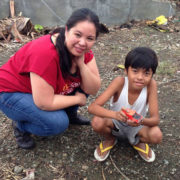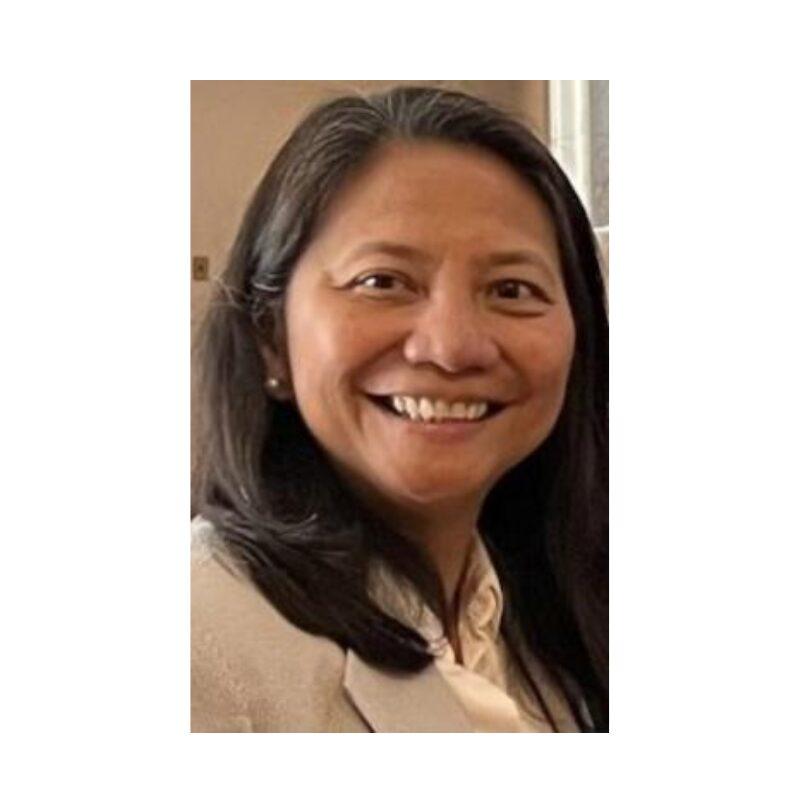LOS ANGELES – A team from the University of Southern California’s (USC) School of Social Work (led in part by Filipino-American Professor Annalisa Enrile) recently returned to the US from a relief mission and from training sessions in the Philippines, where they provided aid to Typhoon Haiyan (Yolanda) survivors.
According to Enrile, the school has a long history of working with Philippine-based nonprofit organizations. And when their partners requested for aid, USC did not hesitate in sending a team of experts to Tacloban City to provide disaster response training and technical support.
The USC team conducted a two-day training for local community workers, which covered several critical areas: psychological first and trauma, exploring the feasibility of creating wellness centers on in schools and churches, care for children and orphans, preventing child trafficking, informal fostering, among others.
The Trojans also focused on delivering inter-generational aid to the elderly Filipinos affected by the storm.
“When we got to Tacloban, we found out that 7 out of 10 of those that were killed were over the age of 60,” Enrile said.
“It astounded us because whenever people talked about what [kind of relief] they were doing, they never talked about the elderly. Everything was pretty much focused on the children, which is of course a vulnerable population,” she pointed out.
They also conducted sessions that tackled issues on community development and innovative rebuilding.
Empowering relief
Even before Haiyan had struck Central Philippines, the school already expected that the big storm’s devastation would reach catastrophic levels.
They reached out to partner organizations in the Philippines to assess what would be needed in the aftermath.
These organizations include the UP Manila’s Social Sciences Department and We Govern Institute, an NGO that advocates against corruption and human rights violations.
Dr. Marleen Wong, who co-led the relief program with Enrile, was in Manila the day after the typhoon made landfall. She saw the initial media coverage and response to the disaster.
According to Enrile, We Govern had asked to partner with USC around some relief efforts for the victims.
“One of the things that was very interesting is they weren’t asking us for donations per se, or relief goods,” Enrile said.
“They really wanted to partner with us in something that made sense, something sustainable in terms of rebuilding, and not just initial relief.”
The Filipina said that the school wanted to build a sustainable relief project, and make sure that they weren’t just “parachuting in, providing relief and then leaving.”
“This rebuilding will take years, and that was a big concern for us,” Enrile said. As the school was developing the idea of the relief operation, they made sure to create a program that was empowering while addressing the victims’ needs.
Enrile said that the school recognized that there was already an existing base of Filipino experts on the ground that they can train for social work and relief.
“There is expertise there. There are social workers, nurses, therapists, teachers—all of these pieces that are there that don’t necessarily have maybe the same information, or the same type of training [as we do],” Enrile said.
Long-term relief
Enrile said that the School of Social Work wanted to launch a long-term relief effort composed by three or four phases that’s directed by the needs on the ground as presented by their partner organizations in the Philippines. They also sought to reach a broad diversity of participants in their training sessions.
“In terms of our first phase, where we offered our training to diverse participants, I would say that we were very successful,” Enrile recounted.
They had over a hundred individuals who attended their training.
This type of humanitarian mission coming from an American university is really unprecedented, Enrile said.
“It was both humbling and enlightening for us to see the amount of expertise coupled with the need for more knowledge,” Enrile gushed.
For Enrile who had been doing community work both here in the US and in the Philippines for over 20 years, she had never thought how their type of relief framework would look like on the ground before the did this recent mission.
“And I thought it was a resounding success in terms of impact,” she added.
Their mission reached over 40 organizations, ranging from the offices of the vice president, several senators, some congressional offices, all the way to small grassroots organizations.
A teacher who participated said “This is amazing! I’m able to speak to people whom I never get access too.”
A human rights worker said “Usually, we’re on the different sides of the picket line. We would never be able to just sit down and exchange ideas.”
Enrile said that the mission really gave the participants the opportunity and the space to sit down, exchange ideas and experiences, to find a lot of ways that they can work together.
“In that sense, I think our objectives were met with extreme success,” Enrile said.
“We’re hoping that these next phases are able to be supported just as successfully,” she added.
Background
Enrile teaches students, who are in their foundation and concentration years at the School of Social Work. She works in areas involving social work theory, community development, and organizational empowerment. She holds a Ph.D in social work from the University of California – Los Angeles (UCLA), and is originally from San Diego.
Enrile moved to LA to pursue higher education and is one of the few Filipina PhDs in her field.
Enrile has been involved with the Filipino community and the Gabriella Network for over twenty years. She chose social work as her primary field so that she would be able to bring to light important social issues surrounding the Filipino-American community.
(www.asianjournal.com)
(LA Weekend February 8-11, 2014 Sec A pg.1)







